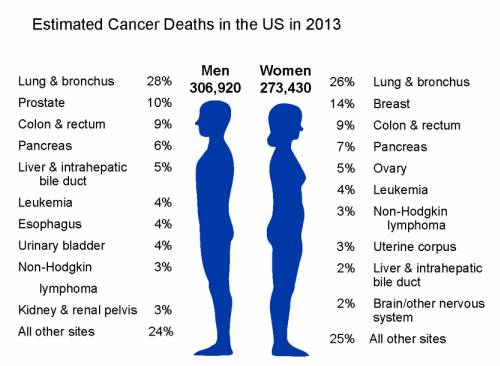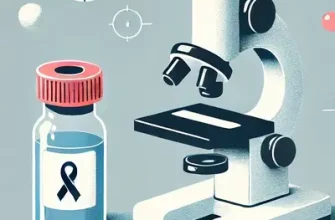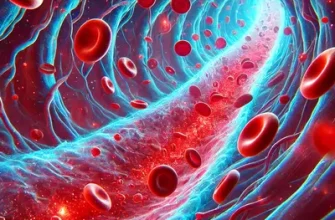What is Cancer?
Cancer is an illness identified by the unrestrained multiplication and dissemination of unusual cells within the body. These cells develop into tumors and have the ability to infiltrate neighboring tissues and organs. There exist more than 100 diverse forms of cancer, each displaying distinctive traits and treatment alternatives.
The beginning of cancer occurs when a cell’s DNA undergoes a mutation, or alteration. This mutation may be triggered by various factors like inherited gene mutations, harmful substances like tobacco smoke or ultraviolet radiation, and certain infections. Upon DNA damage, the affected cell can begin to grow and multiply in an uncontrolled manner, resulting in the development of a tumor.
Tumors can be either benign or malignant. Benign tumors are not cancerous and do not spread to other parts of the body. They can often be removed and are not usually life-threatening. Malignant tumors, on the other hand, are cancerous and can invade nearby tissues and spread to other parts of the body through the bloodstream or lymphatic system.
Cancer is a complex disease that can affect any part of the body. It can cause a wide range of symptoms, depending on the type and stage of the cancer. Common symptoms include unexplained weight loss, fatigue, pain, changes in the skin, and abnormal bleeding or discharge.
Common Risk Factors for Cancer
There are various shared elements that increase the likelihood of developing cancer. Although not everyone with these factors will develop cancer, recognizing and dealing with them can help lower the overall risk. A few examples of these common risk factors for cancer are:
- Age: The risk of developing cancer increases with age. As we get older, our cells are more prone to DNA damage and mutations that can lead to cancer.
- Family History: If your family has a history of certain cancers like breast, ovarian, or colorectal cancer, your risk of developing these types of cancer can be higher. This is because certain genetic changes can be passed down from generation to generation, making individuals more likely to develop cancer.
- Tobacco Use: Smoking or using tobacco in any form is a major risk factor for several types of cancer, including lung, throat, and mouth cancer. Second-hand smoke can also increase the risk in non-smokers.
- Unhealthy Diet: A diet high in processed and red meats, saturated fats, and low in fruits, vegetables, and whole grains can increase the risk of developing cancer. Incorporating a healthy and balanced diet can help in reducing this risk.
- Sedentary Lifestyle: Lack of physical activity and leading a sedentary lifestyle can increase the risk of various types of cancer. Regular exercise and maintaining a healthy weight can help lower this risk.
- Exposure to Carcinogens: Exposure to certain chemicals, toxins, and carcinogens in the environment or workplace can increase the risk of cancer. These include asbestos, benzene, radon, and certain pesticides.
- Sun Exposure: The risk of developing skin cancer can be heightened by prolonged exposure to ultraviolet (UV) radiation, whether it comes from the sun or artificial tanning equipment. Taking measures to shield the skin from the sun’s harmful rays can help decrease this risk.
- Alcohol Consumption: Long-term alcohol consumption has been linked to an increased risk of several types of cancer, including liver, breast, and colorectal cancer. Iytmed.com strictly recommends to quit alcohol!
- Chronic Inflammation: Persistent inflammation within the body may heighten the probability of developing cancer. It can arise due to factors like enduring viral infections, inflammatory bowel disorders, or prolonged contact with substances that provoke irritation.
- Hormonal Factors: Certain hormonal factors, such as prolonged hormone replacement therapy, early menstruation, or late menopause, can increase the risk of certain types of cancer, such as breast or uterine cancer.
It is important to note that while these risk factors can contribute to the development of cancer, it does not necessarily mean that everyone with these risk factors will develop the disease. Making proactive lifestyle choices and seeking regular medical check-ups can help in reducing the overall risk of cancer.
9 Ways to Reduce Your Risk of Cancer
There are several proactive steps you can take to reduce your risk of developing cancer. By making positive lifestyle choices and adopting healthy habits, you can significantly lower your chances of developing the disease. Here are 10 ways to reduce your risk of cancer:
- Avoid Tobacco: Quitting smoking and avoiding all forms of tobacco is the most effective way to reduce your risk of cancer. If you are a smoker, seek support and resources to help you quit.
- Eat a Healthy Diet: Incorporate a variety of fruits, vegetables, whole grains, and lean proteins into your diet. Avoid or limit processed and red meats, as well as foods high in saturated fats and sugars.
- Maintain a Healthy Weight: Excess weight and obesity have been linked to an increased risk of several types of cancer. Strive for a healthy weight by engaging in regular physical activity and following a balanced diet.
- Stay Active: Aim for at least 150 minutes of moderate-intensity exercise or 75 minutes of vigorous-intensity exercise per week. Incorporate activities you enjoy, such as walking, swimming, or cycling, into your routine.
- Protect Your Skin: Limit your exposure to the sun’s harmful UV rays by wearing protective clothing, using sunscreen, and seeking shade during peak hours.
- Stop Alcohol Consumption: Stop your intake of alcohol ASAP.
- Get Vaccinated: Vaccines can help protect against certain viruses and infections that increase the risk of cancer. For example, the HPV vaccine can prevent HPV-related cancers, and the hepatitis B vaccine can prevent liver cancer.
- Avoid Exposure to Environmental Carcinogens: Limit your exposure to harmful chemicals and substances that can increase your risk of cancer, such as asbestos, benzene, and certain pesticides.
- Get Regular Screenings: Follow recommended screening guidelines for various cancers, such as breast, cervical, colorectal, and lung cancers. Regular screenings can help detect cancer at an early stage when treatment is most effective.
By implementing these lifestyle changes, you can significantly reduce your risk of developing cancer and improve your overall health and well-being.
Self Motivation to Take the Actions
Maintaining self-motivation is crucial when taking actions to reduce the risk of cancer. By staying motivated, individuals are more likely to adopt and sustain healthy habits that can significantly lower their chances of developing the disease. Here are a few strategies to help maintain self-motivation:
- Set Clear Goals: Establishing specific, measurable, achievable, relevant, and time-bound (SMART) goals can provide a roadmap for success. For example, setting a goal to exercise for at least 30 minutes every day or to quit smoking within a certain timeframe can help individuals stay focused and motivated.
- Educate Yourself: Learn about the risks associated with certain behaviors and the benefits of adopting healthier habits. Understanding the impact of tobacco use, poor diet, sedentary lifestyle, and other risk factors on cancer development can serve as a powerful motivator to make positive changes.
- Find Your Why: Reflect on your personal reasons for wanting to reduce the risk of cancer. Whether it’s to improve overall health, be there for loved ones, or live a longer and more fulfilling life, connecting with your underlying motivations can provide the drive and determination needed to make lasting changes.
- Seek Support: Surround yourself with individuals who share your goals and can offer encouragement and accountability. Joining support groups or online communities can provide a sense of belonging and inspiration, as well as opportunities to share experiences and tips with others on a similar journey.
- Celebrate Milestones: Acknowledge and celebrate your achievements along the way. Whether it’s completing a week without smoking, reaching a certain weight loss goal, or consistently engaging in regular exercise, recognizing and rewarding progress can boost motivation and reinforce positive behaviors.
Remember, staying motivated is an ongoing process. It’s important to adapt strategies as needed and to be kind to yourself if setbacks occur. By maintaining self-motivation and taking consistent actions to reduce the risk of cancer, individuals can pave the way for a healthier and cancer-free future.









